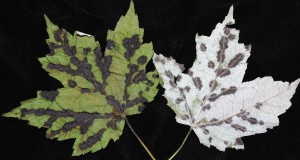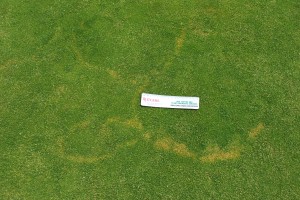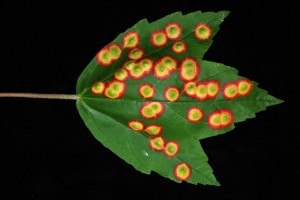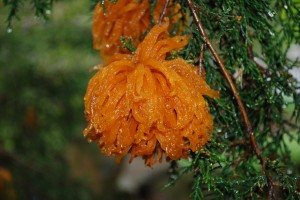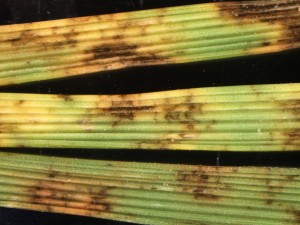Red thread has been festering in turfgrass for some weeks now, but really blew up over the last few days. As long as there is plenty of moisture – light rain, heavy fogs, dew – and optimal temperatures (60ºF to- 75ºF) – the fungus that causes red thread, Laetisaria fuciformis, will tear up susceptible grasses.
Blister in the Sun
Leaf blister on maple? You say no way, leaf blister only gets on oak… A foliar disease that looks very much like anthracnose has appeared on area red maples in the last few days.
Brown Ring Patch
Several samples of brown ring patch found their way into the Plant Diagnostic Laboratory this week. Sometimes confused with take-all, fairy ring, or yellow patch, this relatively newly described malady of Poa annua putting greens is caused by the fungus Waitea circinata.
Bizzaro World
The crew of the Plant Diagnostic Laboratory are always on the hunt for new and exciting examples of plant damage. Last week, out walking her dog, Sabrina Tirpak our Principle Technician and photographer happened upon a red maple with these amazing red leaf spots.
Happy Mothers Day!
Leaf Spot Diseases in Landscape Turf
An unexpected sample walked into the laboratory at the end of last week. Net blotch, which is caused by the fungus Drechslera dictyoides, was subsequently diagnosed on a sample of turf-type tall fescue.

